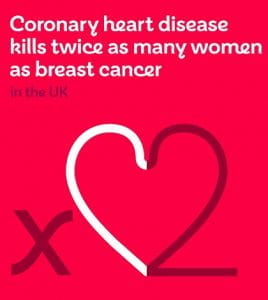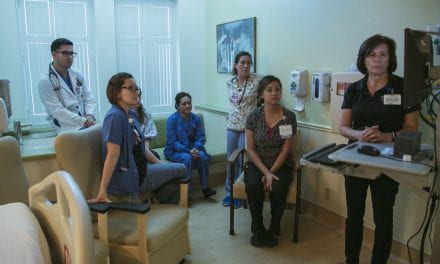A leading charity has warned that lives are at risk, as women are likely to delay seeking help when showing signs of a heart attack.
The British Heart Foundation wants to null the perception that heart disease mainly affects males. “Policy makers and healthcare professionals” will be briefed next year in an attempt to balance the scales, the charity has said.
A heart attack in women can present itself differently.
Research suggests that women are 50 percent more likely than men to receive an incorrect initial diagnosis when having a heart attack.
“[My wife] was originally told she had a viral infection,” widower Alexander Cunningham, 82, says. His wife, Margaret, initially went to the doctor with pain in her back and nausea.
“It wasn’t until we went to A&E that she got rushed to Edinburgh Royal Infirmary with major heart failure,” Mr Cunningham says. Margaret had been enduring a heart attack for days before being diagnosed.
This often occurs due to different warning signs for women and men, Professor Peter Collins explains. “A heart attack in women can present itself differently,” he says.
“Perhaps as pain in the back between the shoulders. Or a patient may have an episode of nausea and vomiting without chest pain.” This is in contrast to the chest pain most commonly associated with heart attacks.
“It may be that women have a higher pain threshold,” Professor Collins continues. “We know that oestrogen is an effective anti-pain agent.”
Research has transformed the likely outcome for someone suffering a heart attack. Yet if you’re a woman, the odds are stacked differently.
BHF’s Dr Sonya Babu-Narayan says that the likelihood of surviving a heart attack is higher than ever. “Decades of research has transformed the likely outcome for someone suffering a heart attack,” she says. “Yet if you are a woman, the odds are stacked differently.”
Studies have shown that women are less likely to be given the same aftercare as men following a heart attack. This includes withholding certain types of medication and surgery, which could save some of the seven women who die of a heart attack each day.
The doctors reckoned she was a goner.
Mr Cunningham says his wife was given the best of care. “She was on God knows how many tablets a day after she got her surgery,” he says. Margaret had multiple stents put into her heart to prolong its function.
“The doctors reckoned she was a goner, but she made it nine years,” he explains. Margaret passed away on April Fool’s Day this year.
“She just suddenly became really ill. Her breathing became terrible and she got really depressed and anxious.”
“She was in the hospital for six weeks before she passed away in the hospice.”
“She got brilliant care, all the nurses were brilliant, but I think they could have got her home. Margaret gave up on herself and I don’t think the nurses knew how to change that,” Mr Cunningham says.
She would have panic attacks because she was so anxious.
Poor heart health affects the entire body, affecting the function of many organs. A sufferer of heart failure may develop memory lapses and severe depression due to the lack of blood being supplied to the brain.
Mr Cunningham explains that this prevented Margaret from having the same life after her initial diagnosis almost a decade ago. Where she used to find enjoyment in her independence, she only felt anxiety.
“She couldn’t get buses on her own anymore, she would have panic attacks because she was so anxious.
“I had to do everything for her, because she just gave up on herself. She used to be so active, so to lose that broke her spirit a bit, I think,” he says.
I’m just glad shes a peace now.
When Margaret passed, a blue tit flew onto the window ledge of her hospice room. Mr Cunningham has since put the image of the bird on her gravestone.
“She leaves me feathers all the time in the house,” he says. “I’m just glad she’s at peace now.”








